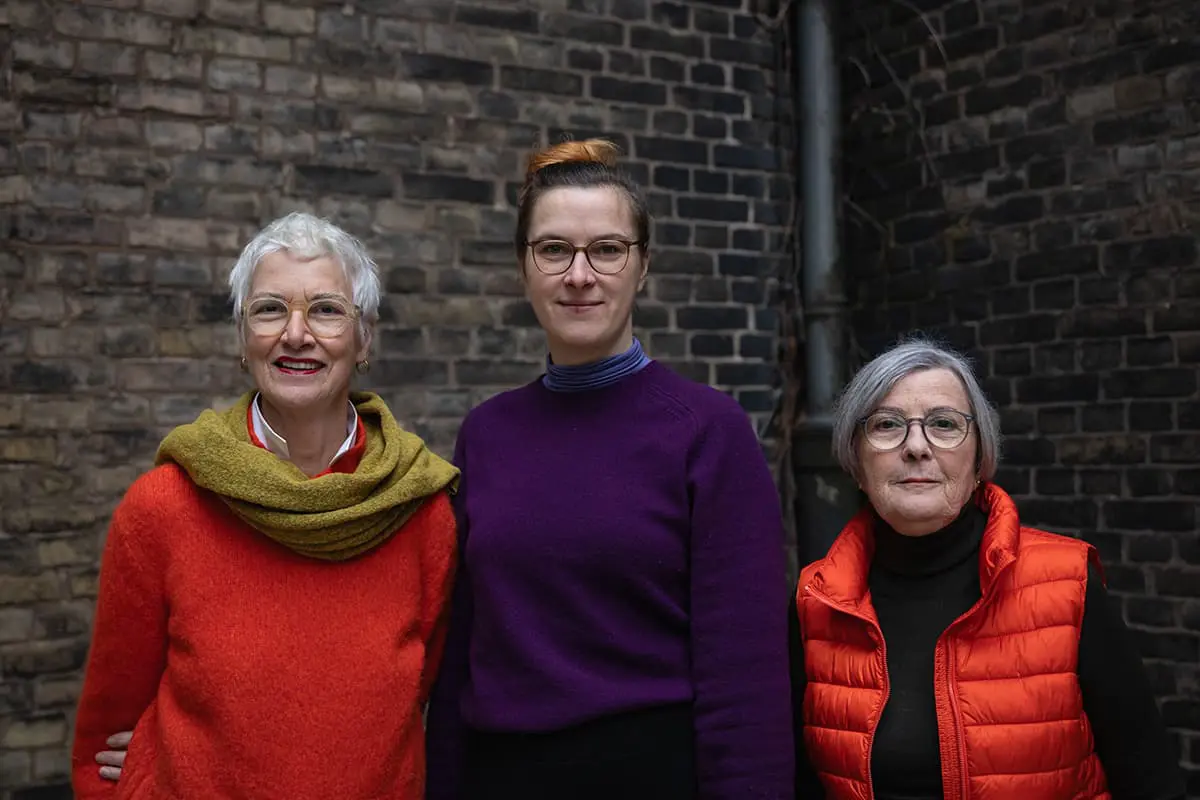About us
The year 2018 will go down in the annals of Berlin dance history. For the first time, more than 200 representatives from cultural policy and administration sat around a table with the Berlin dance scene at the Round Table Dance (RTT). In working groups and plenary sessions funded with 100,000 euros, the situation of dance in Berlin was discussed for months and perspectives were developed and agreed upon. The result: a Dance Development Plan 2019 – 2025, published in 2019 in a 78-page final report.
The discussions in the Research & Mediation (Forschung & Vermittlung) working group focused on the history of dance in Berlin, which is still stored in people‘s heads, flats and offices all over the city (and beyond). There is no archive that has collected, processed and researched this history, including the many stories of dance makers in destroyed, divided and united Berlin. Everyone agreed that it was high time to change this as the number of witnesses who can still report on the early years is dwindling! Private archives are at risk of being destroyed at any time. Collections in publicly funded venues are often just stored somewhere. In the organizations of Berlin’s “independent scene”, resources for archiving are limited or non-existent. Never mind the digitization of existing collections or the interlinking of sources.
In 2020, the TanzArchiv Berlin steering committee was appointed by the Berlin Senate of Culture with the task to, between 2020 and 2025, develop a concept for an archive. Claudia Feest, Claudia Henne, Alex Hennig, Christine Henniger and Doris Kolde, five women from different generations and with different professional experiences, set to work. It all began with a survey: do we need a dance archive? Yes, was the overwhelming opinion; and the need was stated very clearly and comprehensively. What should it look like? Definitely different from the existing archives. In addition to archiving physical material, a Berlin dance archive should also focus on embodied movement knowledge and the special ‘in-process’ and eventful nature of dance. It should be a place of information, communication, exchange, scientific and artistic research – open to all those who work with and for dance or simply love it and want to know more. We are working on this together with dance professionals, experts, witnesses, academics, mediators, institutions, venues, etc.
We discussed our requirements for a physical space with the House for Dance and Choreography (Haus für Tanz und Choreografie) working group, because we believe the dance archive needs an analogue space as well as a digital one. We are in constant dialogue with the Access Point Dance (Tanzvermittlung) steering committee. We meet with colleagues from existing archives, e.g. the Akademie der Künste and the Berlin State Archive. We sit down with representatives of the Berlin Senate Department for Culture – in other words, we do a lot to achieve our goal: the TanzArchiv Berlin.
In the meantime, Alex Hennig and Doris Kolde, who provided important impulses and were actively involved, have left the steering committee. In 2022, Agnes Kern joined us as project manager and Johanna Withelm became responsible for editing/communication. We are now embarking on our digital existence: on this website, we will publish everything we have done since 2020 towards a TanzArchiv Berlin, together with our archive accomplices …The end is open.

People involved
- Steering Committee TanzArchiv Berlin: Claudia Feest, Claudia Henne, Christine Henniger
- Project Management Website: Agnes Kern
- Editing & Communication Website: Johanna Withelm
- Accessible Web-Design: Oliver Vaupel – ovau design studio
- Social Media: Aïsha Mia Lethen Bird
- Translation GER > EN: Beatrix Joyce